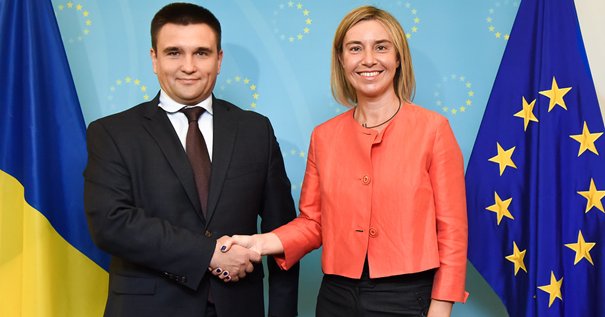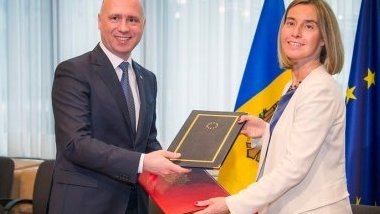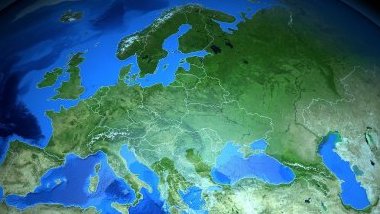Last December, three years after the entry into force of the Association Agreement between Ukraine and the EU, President Volodymyr Zelensky reaffirmed that Ukraine would pursue its constitutional objective of gaining Union membership. How would you assess the evolutions of the EU-Ukraine relationship since 2014?
I would address this question firstly from the economic and secondly from the political point of view. Concerning the economic relations between the EU and Ukraine, I would say that of course, they developed a lot, since Ukraine exports its goods mainly to the European Union, its most important trading partner. Especially since 2014, we have observed that there has been almost no trading relationship with Russia any more. There has been a significant increase in Ukrainian exports to and imports from the EU. Due to the establishment of the DCFTA (Deep and Comprehensive Free Trade Area), there are industries whose yearly export quotas are already reached by January-February. Nonetheless, this economic relationship continues to be affected by the slow implementation of political reforms in Ukraine.
As you know, the Association Agreement between the EU and Ukraine, the most complex and ambitious agreement ever signed by the EU, almost fully integrates Ukraine with the EU internal market for goods and services. To what extent are those changes visible in everyday life in Ukraine?
It is true that the establishment of the EU-Ukraine DCFTA mainly benefits the producers of goods and service providers. However, I think that those changes are unfortunately not as visible for ordinary Ukrainian citizens as they should be. In general, I have the impression that most Ukrainians do not really understand the benefits of the Association Agreement with the EU, both for their country and also for themselves.
Thanks to the visa-free movement of people between Ukraine and the Union, many Ukrainians choose to work in the EU. Whereas Ukrainian economic migrants gain higher wages, their host countries benefit from additional workers. However, I imagine that this situation might also increase the “brain drain” for the region.
Speaking of the brain drain, I must say that this phenomenon was already present in Ukraine for many years, practically since the beginning of 1990s. The measures introduced under the Association Agreement did not change a lot in this matter. Although, since 2014, lots of Ukrainians have started emigrating to countries such as Poland, there is also a growing number of emigrants coming back to the country. For example, since 2017, we have seen many IT specialists return to Ukraine as they have been attracted by competitive salaries which give them very high purchasing power.
In general, would you say that in the context of increased mobility and due to the current political situation, Ukrainian society has more favourable views of the EU than before the Revolution of Dignity?
Yes, I do think that with increased mobility Ukrainians have more favourable opinions on the EU, especially when it comes to people who used to remain indifferent towards the EU-Ukraine relationship. In particular, with the introduction of the visa-free regime, the Ukrainians (with the exception of workers whose mobility was also significant before 2017) started to travel much more. Low-cost airlines have also developed a lot in the recent years: before the pandemic, new airways were opened basically every month. However, in this context, we also need to mention the role of the Russian Federation: faced with the aggressor, more and more people support Ukrainian association with the EU.
Speaking of the issues Ukraine has to face, I think of fighting corruption and reforming the judiciary, both of at stake in the current constitutional crisis. What are the main challenges for the near future?
The main challenge for the years to come is ensuring the stability of institutions and their independence from successive governments. It is also important to maintain a sufficient pace of reforms, especially the political ones. Unlike in the Association Agreement’s provisions related to the DCFTA, there are no specific requirements as to the implementation of the political acquis communautaire. This is why the rule of law, democracy and the fight against corruption remain the major difficulties in Ukraine.
Despite some attempts to bring positive changes, such as the establishment of the new Supreme Court and Judicial Council, their results remain insufficient. The only good example in the field of the judiciary is the recent creation of the High Anti-Corruption Court. It has been successfully established as a truly independent institution thanks to the participation of international experts who evaluated the candidates and prevented the appointment of corrupt judges who represent the old system.
According to you, what are the prospects for the development of the EU-Ukraine relationship in the years to come?
I think that the Association Agreement gives many opportunities for the development of the EU-Ukraine cooperation, in particular within the DCFTA. This, however, will mainly depend on how quickly Ukraine implements the necessary reforms. In my opinion, it will probably not be done more quickly than so far. It is therefore important to protect the already completed reforms rather than to expect new, significant changes.






Follow the comments: |
|
